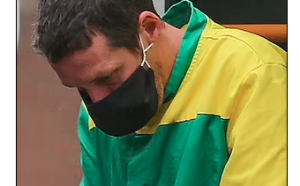In Do Penance or Perish: A Study of Magdalene Asylums in Ireland, first published in 2001, historian Frances Finnegan acknowledged the critical role of technology in the demise of Ireland’s institutions for ‘fallen women’ saying, “Possibly the advent of the washing machine has been as instrumental in closing these laundries as have changing attitudes.”
Ireland’s Magdalene Laundries were not only for prostitutes, a whole range of women could be considered ‘fallen women’, including unmarried mothers or those merely suspected of promiscuity. The last Laundry closed in 1996 and this year has seen the publication of the McAleese Report into State involvement with the Magdalene Laundries, an official State apology, and the announcement of a compensation package for former inmates.
However no prostitutes were interviewed for the McAleese Report, nor were prostitutes mentioned in the State apology. Listening to the state apology it was actually arguably not an apology to prostitutes at all, rather only an apology to the ‘innocent’ women detained alongside prostitutes.
Prostitutes or ‘sex workers’ as most would rather be termed today, remain the focus of Ireland’s Magdalene Laundry orders. The only organization Government funded to work with sex workers is Ruhama, the trustees of which are the Sisters of Our Lady of Charity and the Good Shepherd Sisters. All of the four Magdalene Laundry orders continue to focus on sex work.
However technology dramatically changed sex work in the 1990s. It moved it indoors. Mobile phones and the Internet meant sex workers no longer had to hang around on street corners to solicit clients, and, given the choice, the vast majority of sex workers chose to move indoors.
It is not only Ireland that has seen this change, technology led to sex work moving indoors at the same time in many other countries. Ireland’s criminalization of advertising prostitution in 1994 did however ensure that, in Ireland, advertising rapidly moved solely to the Internet, whereas in many other countries advertising in print media or other forms continued alongside web advertising.
Sex work moving indoors brought as many advantages for sex workers as it did difficulties for the religious, who have been patrolling the streets at night since Frank Duff and the Legion of Mary famously closed down Dublin’s famous red light district ‘Monto,’ in 1925 and probably before then.
However, as Ruhama goes on to say:
“One negative consequence for Ruhama is a reduction in the opportunities to make contact with the women directly through the current approach to street outreach. There is a need therefore to explore other possibilities of making contact such as advertising on the Internet or websites used by the women, posting flyers and advertisements in public places frequented by the women etc.”
Organisations working with sex workers can of course advertise for sex workers to contact them, but this is a different model to what the Magdalene Orders are used to. Outdoor sex workers can be confronted by outreach workers whether they want to be or not. But when an organisation is only able to advertise its contact details, sex workers can choose whether they have any contact with the organisation or not. Ultimately, an organisation providing services sex workers find useful will thrive, but an organisation not providing services sex workers consider useful will fail.
A review of prostitution legislation in light of its changed nature due to advances in technology was announced by the Government last year and, following this, last month the Justice Committee published its Report on hearings and submissions on the Review of Legislation of Prostitution.
The Justice Committee recommended the criminalisation of the purchase of sex, which would see adults purchasing sex from other consenting adults in private become a crime for the first time in Irish history. In addition the Justice Committee recommended a number of additional measures that appear designed to displace sex workers back outdoors.
Currently sex workers are able to work indoors legally provided they work alone, and landlords are able to rent to single sex workers, but the Justice Committee has recommended a new criminal offence of allowing a premises to be used for prostitution, which would prevent sex workers being able to rent accommodation. Further the Justice Committee has recommended that Gardai and charities have the power to shut down phone numbers being used for prostitution and that accessing prostitution websites be treated the same in law as accessing child porn websites.
These proposed measures are exactly what Ruhama requested the Justice Committee recommend.
Sex workers and others concerned with the welfare of sex workers say they were not given a fair hearing by this Justice Committee. The negative safety implications for sex workers of the proposed measures are obvious. But the religious are in high spirits following the publication of the Justice Committee’s recommendations and clearly hopeful they will swiftly become law. They have good reason to be hopeful too. To date politicians and the media have shown little interest in hearing any opposing views. Sex workers today perhaps face the very same apathy that allowed the Magdalene Laundries to operate in this country longer than similar institutions in similar countries.
But can technology be used to stop prostitution now?
If the mobile phone numbers of sex workers can be shut down by the Gardai or charities, what is to stop sex workers using foreign phone numbers, e.g. UK phone numbers, or VoIP services, e.g. Skype, instead? Never mind the ethics of denying a section of society use of phone communications, is it actually possible for the Government to do so in this day and age?
The same could be argued for websites. Ireland passing a law equating prostitution content to child porn won’t give it the power to enforce that law around the world and get such websites shut down.
Some blocking measures could be forced on Irish ISPs, but these could be easily circumvented by Internet users inclined to get around them. Also we already know what happens when attempts are made to censor prostitution websites, they simply change their language. That’s what happened when US classified ads website Craigslist.com closed down it’s ‘Adult Services’ section in 2010, sex workers simply moved to advertising in the ‘Personals’ section of the website instead, and ‘roses’ is now the code for ‘dollars’. What about websites like Twitter and Facebook sex workers use, will they be blocked too? Ireland is a Western democracy and tech businesses are vital to the economy, we simply can’t adopt a massive Chinese style censorship regime here. This only leaves treating sex workers and sex worker clients using the Internet like pedophiles. Speaking of which, how will prostitution content be differentiated from dating websites or glamor or porn websites, or will accessing them become an offense in law the same as downloading child abuse material too?
Arguably, when mobile phones and the Internet became widely available in the 1990s, this was the second time in the twentieth century that technology put an end to the Magdalene Laundries orders having power over ‘fallen women’. Is it possible that legislation could now force sex workers back onto the streets? And, if not, the only question is when will the Magdalene Orders finally give up?







